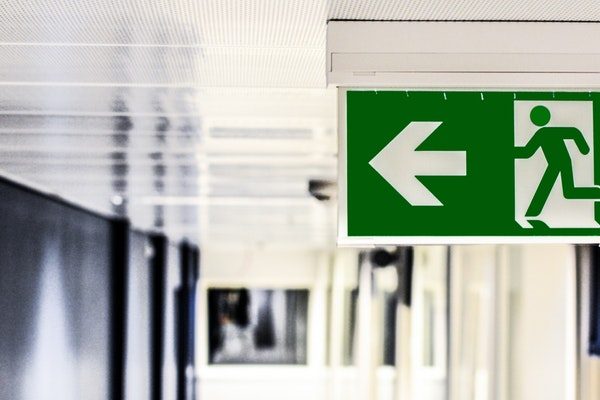7 common workplace emergencies and how to respond to them

You can’t really predict an emergency, no matter where it happens, but you can do one thing: learn how to respond to it. Both you and your employees need proper training to effectively respond to any workplace emergency, especially if the response needs to be immediate. Some emergencies can just cause a disruption to your work, but others can harm workers and customers or damage materials, equipment and facilities. Here are the most common workplace emergencies and best ways to respond to them.
Medical emergency
Medical emergencies are the most common. While some are very small (cuts, bruises and harmless falls) others require immediate attention like cardiac arrest or fractures. Your fast response is critical and you need to ensure first responders know how to give first aid and CPR. Your first step should be to call the ambulance and not move the victim (unless necessary to save their life). Assist your emergency responders when they arrive and notify the victim’s next of kin. If you follow this protocol, there’s a good possibility your injured employee will recover quickly.
Weather-related emergencies
These are also quite common, especially in certain areas. Weather conditions like tornadoes, hurricanes, floods and blizzards can all stop your work, cause damage to your facilities, trigger power outages and even injure your workers. In case any of these natural disasters hit your area, make sure to stay tuned and wait for the instructions from the emergency-scene commander (power outages could slow down communication). Stay informed using local news and don’t evacuate until you get a direct order to do so.
Installation overload
This is one of the most common workplace emergencies even in the most developed environments like Australia. The reason why electrical emergencies are so common in the workplace is the fact that these can be triggered by many things from human errors to animals chewing on wiring, but electrical system overloads are probably the leading cause. Luckily, this is the type of emergency that can be prevented to an extent by having your installations in best shape. Make sure to find an experienced electrician in Western Suburbsto handle any damage to your wiring, make any necessary updates and conduct inspections of your space. But in case a fire does happen, call the local fire department and evacuate the place. Set off a fire alarm, use stairs and let the professionals handle your emergency, especially if it’s big. Only certified and trained employees can use fire extinguishers, so leave their handling to those who know how.
Earthquake
During an earthquake, people are mostly in danger from collapsing ceilings, fixtures, windows and other falling objects. In case an earthquake hits your area, make sure to stay calm and instruct people to find cover under sturdy furniture or brace against an inside wall. If you have to evacuate, use stairs and not elevators. Make sure to always stay alert, assess the situation and stay away from unstable objects. Keep your head and neck protected and be ready to rescue victims (professionals might be overwhelmed and unable to respond).
Faulty equipment
Every office contains many high-tech devices and each can stop working without a warning. But, since your PCs, copy machines, printers and tablets are all crucial to your business, any facility manager needs to know how to handle smaller issues and get the business running again. Additionally, make sure to have professionals on speed dial for any more serious problems. Pro tip: have all your equipment protected with anti-virus systems, get the units cleaned regularly and encourage digital purging in the office to extend the life of your electronics.
Hazardous substances leak
Any substance that’s harmful to human health is a hazardous substance (solvents, paints, pesticides, petroleum products, heavy metals…) If there was a leak in your facility, a nearby workplace had a leak or there was an accident on a nearby freeway, make sure to notify your fire and police departments. Describe your emergency and you’ll get instructions from the scene commanders and coordinators.
Pipe leaks
No matter what kind of business you run, every workspace is usually filled with important documents and expensive electronics, so having a flood due to a burst pipe is one of the worst things that can happen. No matter how handy you or your facility manager are, there’s a small possibility you can fix the issue by yourselves. It’s best to contact an emergency plumber who can come and handle your pipe bursts quickly and safely.
Every company and every emergency is different, so you must assess the situation properly and take smart actions. No matter what you do, make sure to train your employees and create a good Emergency Action Plan everyone will know—this is the best way to make your reactions quick and smart.
Derek Lotts is an experienced freelance writer and researcher. His main areas of interest are small business, home improvement, and sustainable living. He strongly believes in the power of sharing knowledge and ideas through the mediums of modern technology.








